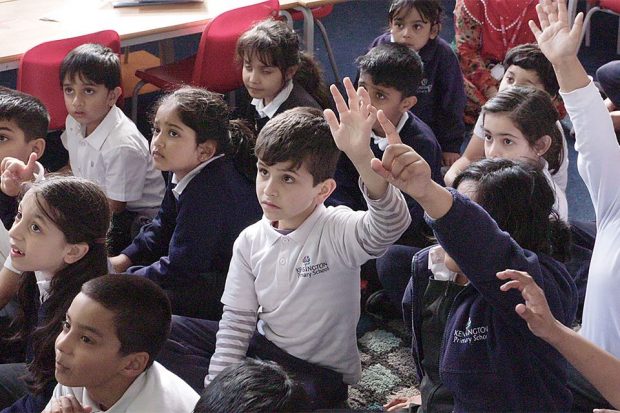
Today our blog looks at new guidance from the Education Endowment Foundation as well as school meals and new funding for educational partnerships.
Behaviour Management
Today, Friday 7 June, the Education Endowment Foundation published new guidance on improving classroom behaviour. The guidance says that personalised approaches to behaviour management can be effective. The story has been covered by the Independent, the Times, the Metro, the Telegraph, the Sun and the Mail.
The guidance also notes that teacher engagement with pupils such as greeting at the classroom door can be effective and help disruptive students.
School Standards Minister Nick Gibb said:
Continuing to improve behaviour in our schools is a key priority for this Government. Calm and safe school environments benefit all students, allowing them to concentrate fully on their studies. Just one instance of bad behaviour in a classroom can derail an entire lesson, holding back every other pupil in the room.
We know these instances of classroom disruption damage teachers’ morale and increase workload and stress which is why we want schools to instil a culture of good behaviour. This advice from the EEF will be a useful tool for schools to see what works. It builds on guidance produced by the Government’s lead adviser on behaviour, Tom Bennett in 2017. We are providing additional support for schools through our behaviour support networks – a group of schools, backed by £10million, that will help those schools in need of support and spread best practice around the country.
School Meals
Today, the Children and Families Minister Nadhim Zahawi has written to all schools to remind them of their responsibilities regarding providing accessible water at schools as well as the importance of free school meal provisions. This letter was published in the Times.
The Minister’s letter follows the Children’s Future Food Inquiry report published in April, which looked at key barriers facing children on free school meals – an issue which we see as a key priority.
Minister for Children and Families, Nadhim Zahawi, said:
I am proud that this government supports more than a million of the most disadvantaged children through free school meals, but there is more to be done to make sure no young person receiving them faces stigma or shame, which is why I have written to all schools today to remind them of their obligations under the law when it comes to things like providing free drinking water.
Meeting the Future Food Inquiry’s articulate young ambassadors was eye-opening, and we must all learn from their experiences to make school food better for everyone. I want to encourage schools to think about whether they are really doing everything in their power to make sure disadvantaged pupils can enjoy healthy food just like everyone else.
Also on this topic, Kellogg’s put out a press release today on children skipping breakfast and school meal provisions. This was covered in brief by the Mirror.
The press release said that children miss six hours of lessons a week due to hunger – this was based on a survey of 995 which asked teachers their thoughts on how many hours a child may be missing due to hunger, before calculating an average.
A Government spokesperson said:
We want every child to reach their potential and healthy meals can contribute to their development and improved attainment. That is why we are providing free school meals to more than one million of the country’s most disadvantaged children to ensure every child has the best start in life.
We are also investing up to £26 million in a breakfast club programme, using funds from Soft Drinks Industry Levy revenues. This money will kick-start or improve breakfast clubs in over 1,700 schools and will be targeted at the most disadvantaged areas of the country – including the Department for Education’s Opportunity Areas – to help make sure every child gets the best start in life. This builds on our previous £1.1 million investment in a breakfast club programme which ended in March 2016.
School Partnerships Fund
Today, we have announced funding of £200,000 for schools, private schools and universities to bid into, in order to set up partnerships to share resources and expertise. TES and Schools Week both reported on this announcement.
The grant will give schools an exciting opportunity to create new partnerships. Funding can be used to cover basics such as transport costs between sites or extra curriculum resources.
Speaking via video today, Lord Agnew said:
This government’s ambition is to create an education system that extends opportunity to everyone. One of the ways in which we can extend opportunity is through partnerships – schools working with other schools and universities to share what’s best about each sector.
Today, I am pleased to announce grant funding of over £200,000 to directly support school partnerships. This funding will create fantastic opportunities for schools, which could use grants either as seed funding for new partnerships, or to expand and deepen existing ones.
I invite you – as leaders in education – to use this opportunity to bring about a new wave of meaningful partnerships, and to encourage others to think about how similar collaborations could benefit their schools as others across the country have already.
Follow us on Twitter and don't forget to sign up for email alerts.